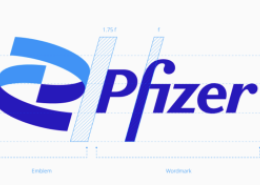#FOGO? – New Survey Reveals 87% of Americans have a Fear of Getting Old (FOGO) – Results Show Top Fear is Decline in Physical Ability1
Pfizer’s Get Old Campaign Challenges Conventional Attitudes about Aging New social study finds 4.2 million tweets a year on aging; topic of health grew 48% in 2014 over 20132
Life expectancy continues to climb — up to more than 81 years for women and 76 years for men3 – but many of us have concerns around aging. Pfizer is challenging Americans to address their #FOGO – Fear of Getting Old – as the next phase of Get Old, an initiative by Pfizer around aging, encouraging honest conversations and celebrating getting “old” at whatever stage of life you are.
“We want people to Get Old with a new attitude. If you address fears or concerns today you can work to make the right health and lifestyle choices that will impact how you age tomorrow,” said Freda Lewis-Hall, M.D., Chief Medical Officer at Pfizer. “People of all ages should start thinking about how they want to age, and turn fears into healthy actions.”
A recent survey, conducted online by Harris Poll on behalf of Pfizer’s Get Old, found that 87% of Americans have at least one fear when they think about getting old. Decline in physical ability is the most feared by 23% of Americans, followed by memory loss at 15% and having a chronic disease or running out of money at 12% each – all of which are higher than the fear of dying at 10%.1 Additionally, a separate social research study found that the majority – 62% – of the 4.2 million Tweets posted about aging in the last 12 months were negative. In the analysis, health and wellness were the most commonly discussed Tweet topics and were up 48% in 2014 versus 2013.2
A study by Pew Research suggested that these aging concerns may be unnecessary. In the study, those over 65 experienced less issues like memory loss and illness than were expected by those under 65.4
Get Old’s refresh will tackle these fears head-on by bringing wit and wisdom to aging through a social and digital initiative. GetOld.com and social channels will feature new, engaging, shareable content to address the Fears of Getting Old (#FOGO) including:
- A social quiz on #FOGO to determine what “persona” the user might be when they age – including options like “The Dude” and “The Grouchess”
- Videos with five-and six year-old “experts” talking about getting old
- Educational content on topics such as health and wellness, family and relationships and love and sex
These educational efforts are supported by more than a dozen Get Old partners, including National Council on Aging, American Sexual Health Association and Men’s Health Network.
“Like everything worthwhile in life, aging successfully requires attention and effort. Taking charge of good health habits, finances, positive attitudes and social ties pay huge benefits for the rest of your life,” said Daniel Perry, founder of the Alliance for Aging Research.
Get Old, developed by Pfizer in 2012, is an ongoing initiative to foster candid conversation around aging, redefine what it means to ”get old” and encourage individuals to make healthy behaviors to age the way they want.
Other Pfizer health and aging efforts include:
- Get Healthy, Stay Healthy – Pfizer’s Chief Medical Officer Freda Lewis-Hall’s health education site; and
- The Pfizer Foundation’s partnership with Grantmakers In Aging, working with five American communities to accelerate their efforts to become “age friendly communities.”
- In addition, Pfizer is a founding member of ReACT (Respect a Caregiver’s Time) an employer-focused coalition dedicated to addressing the challenges faced by employee caregivers.
Get Old Partners: Alliance for Aging Research, American Sexual Health Association, Caregiver Action Network, Generations United, Men’s Health Network, National Academy on an Aging Society, National Alliance for Caregiving, National Association of Nutrition and Aging Services Programs, National Consumers League, National Council on Aging, SAGE, Society for Women’s Health Research, The Gerontological Society of America and WomenHeart.
ABOUT GET OLD RESEARCH
Get Old Survey
This survey was conducted online within the United States between July 10-14, 2014 among 2,088 adults (aged 18 and over), by Harris Poll on behalf of Pfizer Inc. via its Quick Query omnibus product. Figures for age, sex, race/ethnicity, education, region and household income were weighted where necessary to bring them into line with their actual proportions in the population. Propensity score weighting was used to adjust for respondents’ propensity to be online.
All sample surveys and polls, whether or not they use probability sampling, are subject to multiple sources of error which are most often not possible to quantify or estimate, including sampling error, coverage error, error associated with nonresponse, error associated with question wording and response options, and post-survey weighting and adjustments. Therefore, the words “margin of error” are avoided as they are misleading. All that can be calculated are different possible sampling errors with different probabilities for pure, unweighted, random samples with 100% response rates. These are only theoretical because no published polls come close to this ideal.
Respondents for this survey were selected from among those who have agreed to participate in our surveys. The data have been weighted to reflect the composition of the adult population. Because the sample is based on those who agreed to participate in the online panel, no estimates of theoretical sampling error can be calculated.
Get Old Social Research
The study was commissioned in early 2014 by Pfizer Inc., to assess how aging is being discussed on the social media platform Twitter.
Crimson Hexagon used its ForSight™ platform with patented technology developed at Harvard University’s Institute for Quantitative Social Science (IQSS) and led by Albert J. Weatherhead III University Professor Gary King, and his team of social scientists and statisticians.
The study’s goal was to determine the size, growth or decrease, and sentiment of the aging conversation and to identify common themes and topics.
Pfizer Inc.: Working together for a healthier world®
At Pfizer, we apply science and our global resources to bring therapies to people that extend and significantly improve their lives. We strive to set the standard for quality, safety and value in the discovery, development and manufacture of health care products. Our global portfolio includes medicines and vaccines as well as many of the world's best-known consumer health care products. Every day, Pfizer colleagues work across developed and emerging markets to advance wellness, prevention, treatments and cures that challenge the most feared diseases of our time. Consistent with our responsibility as one of the world's premier innovative biopharmaceutical companies, we collaborate with health care providers, governments and local communities to support and expand access to reliable, affordable health care around the world. For more than 150 years, Pfizer has worked to make a difference for all who rely on us. To learn more, please visit us at www.pfizer.com.
____________________________
1 Harris Poll Research 2014 commissioned by Pfizer’s Get Old
2 Crimson Hexagon ForSight™: Aging Conversation 2014 commissioned by Pfizer’s Get Old
3 Pharmaceutical Research and Manufacturers of America. Medicines in Development for Older Americans. PhRMA.org.http://www.phrma.org/sites/default/files/pdf/2014-meds-in-dev-older-americans.pdf
4 http://www.pewsocialtrends.org/2009/06/29/growing-old-in-america-expectations-vs-reality/
Media:
Pfizer
Brenna Robinson, 212-733-4631








